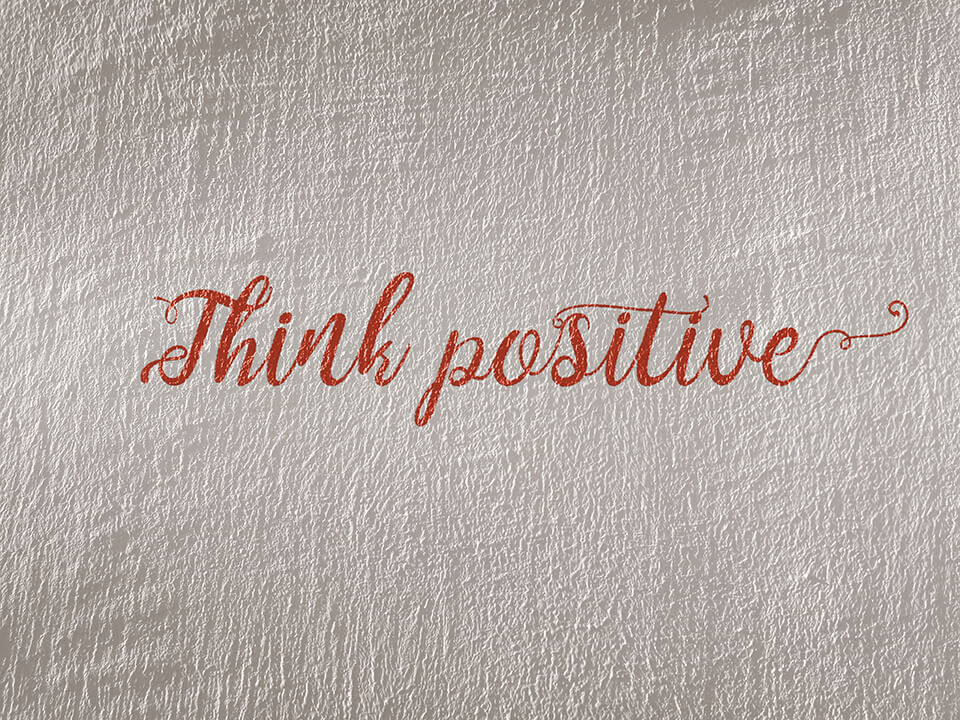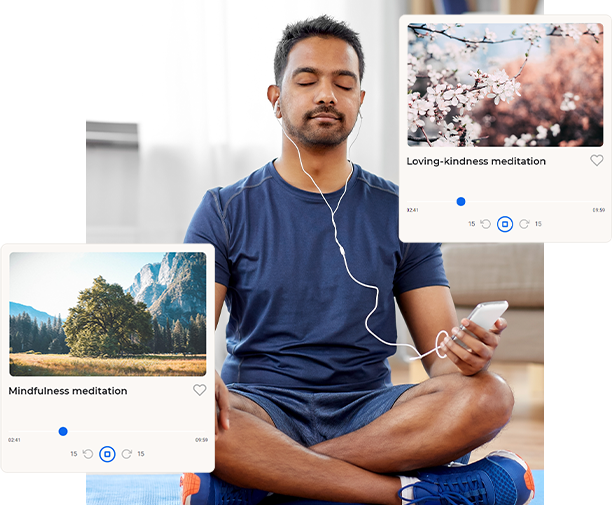Not being able to focus on tasks at hand and continually losing your train of thought due to different urges, anxiety, and intrusive thoughts can be detrimental to a person’s daily life. This situation of having compulsive urges and meaningless thoughts is known as Obsessive-Compulsive Disorder. A considerable proportion of people around the world suffer from OCD knowingly or unknowingly. In this article, we’ll talk about how meditation can help with OCD and how it can be more effective than other forms of treatment, be it medication or psychotherapy.
Do you have OCD?
The first step is to diagnose yourself. This will inform you if you need to seek professional treatment. Do you really even have OCD? This is the question that you need to ask yourself. How does one know if they have OCD? This is something that might pop up in your mind.
Obsessions
When you wake up in the morning about to start your morning routine, do you start immediately thinking about something entirely unrelated for long periods? Something that makes you feel anxious for no reason or unhappy. Perhaps something that causes stress? Does it often become uncontrollable? These thoughts are called obsessions.
Compulsions
Maybe you feel the urge to clean the house all the time or wash your hands vigorously, and every stress-inducing activity leads you to do one of these. Such an action is called compulsion.
Both lead to OCD
In both cases, you have OCD. However, instead of telling yourself that you’ve another problem at your doorstep, try telling your mind that it’s ok. There could be a problem with you, but nobody but you can solve that problem.
Choosing the right treatment

It’s now time to address your disorder. OCD can be chronic and long-lasting, and therefore, the best treatment needs to be chosen. You can make different choices for treatment.
- Medication – Using anti-depressants and other prescription medications for dealing with the disorder. It has a better temporary relief than complete permanent relief. This is often the best option for most people. Seek professional treatment to understand your best option for treatment.
- Psychotherapy – Interaction with a therapist who is a professional in psychology, and understanding of human behavior can sometimes lead to positive results.
- Meditation – Choosing meditation has been proven to be one of the best methods of avoiding and treating OCD. We’ll go over how meditation can help with OCD later.
Is meditation good for mental disorders?
Meditation is used all around the world for different purposes. Some use meditation to reduce stress. Some use meditation to feel healthy. Some people find peace in meditation. Our goal is to use meditation to reduce the effectiveness of OCD so that we can stop it from controlling our minds and allow us to deal with our mental suffering head-on.
Generally speaking, meditation deals with focusing on the breath. This focus can break your attention off the intrusive and unnecessary thoughts that any stress-inducing activities or problems might put you through. Therefore, it is suitable for treating mental disorders. From personal experience, I’d like to say that meditation is one of the best exercises for dealing with mental illnesses, and you should definitely adopt it.
How meditation is excellent for people with OCD
If you’re suffering from OCD, you won’t be able to focus on anything properly. You’re going to be put through a series of uncomforting thoughts and compulsions to avoid confrontation and facing tough situations. Therefore, the art of meditation will obviously be great for you. Meditation leads to mindfulness. Mindfulness is when a person becomes aware of their thoughts without any judgment for them.
How is mindfulness helpful?
This mindfulness helps people with OCD feel more in tune with their true feelings instead of losing mental control. When a person with OCD meditates, the compulsions and obsessions are understood. They are adequately considered, but after these compulsions and obsessions, the patient knows that they’ve to return to their normal state of breathing.
Breathing simply refers to focus on your breath. The most effective type of meditation is bringing attention to your breath. When you focus on your breath, take time to inhale and exhale, you’ll be in a state of freedom. You won’t be surrounded by right or wrong, and there will be no self-judgments.
In this mindful state, you’ll indeed be exposed to your OCD, and this is where you deal with your stress and anxiety. Therefore, dealing with OCD is most efficiently done with the help of meditation.
Treating OCD with meditation

Treating obsessive-compulsive disorder with meditation is the right way to go if you’re using it to supplement other treatments. It involves a series of steps that must be followed accordingly. To deal with OCD most effectively, follow this step by step guide for meditating with OCD. You can also learn meditation on your own at home using a meditation app. We recommend our app, Declutter The Mind.
Step 1: Seclude yourself
The first and foremost step is to be in solitude. Find a perfectly calm and comfortable spot for yourself, which isn’t very noisy and distracting, and sit there before you start your meditation process.
Step 2: Breath
Now we need to start the process of meditation. Sit in a comfortable stance. You don’t have to cross your legs necessarily. It is more about the mind than physical postures. Close your eyes. Start focusing on your breath.
Inhale. Hold your breath for 3 to 4 seconds. Exhale. Continue the process. In case of any outside distractions, you can start from the beginning again, with no pressure.
Step 3: Understand your obsessions and compulsions
Your OCD will now try to divert your mind from your breath to activities and thoughts that might make you uncomfortable. In the state of meditation, you’re going to let your mind free and allow it to explore the obsessions and compulsions. Understand that they’re just thoughts. And that you’ll overcome them.
Step 4: Return your focus to the breath
Once you’ve completely understood the compulsions and obsessions and realized that they hold no real meaning, you can return your focus to your breath. This can happen several times throughout the meditation process. Especially with OCD sufferers. This is how meditation helps with OCD. So, stay firm and keep your focus intact.
Step 5: Become self-aware
With constant focus and attention, you will achieve a state of mindfulness where you’ll be able to focus on your breath entirely without any distracting thoughts that might cause you to overthink or divert your attention. This mindfulness will bring a sense of self-awareness, which will give you insight into who you indeed are and what you stand for.
Step 6: Begin your everyday activities
After your meditation session is complete, gently open your eyes and sit for a few minutes. Feel good about yourself. You’ve accomplished something. And with this new and positive attitude, begin your daily activities. You’re definitely going to feel better about yourself and be able to perform better in a stress-free environment.
Is meditation difficult for people with OCD?
Meditation is a challenging and repetitive process in general. However, when it comes to people with obsessive-compulsive disorder, the process of meditating definitely becomes harder. This is because OCD causes a person to stray from the meditation process even more than anxiety and stress themselves. Because anxiety and stress are both factors of OCD, meditation becomes much harder for OCD sufferers.
That doesn’t mean that OCD sufferers can’t meditate. There are several notable cases of people treating severe OCD with meditation, and you can do it too. All you have to do is stay calm and positive.
Benefits of meditation for people with OCD

Along with obvious benefits like better mental health and relief from constant anxiety and stress, here are some of the great benefits of meditation for people suffering from OCD.
- Promotes positivity – How meditation helps with OCD brings in you a sense of appreciation. By understanding your problem and anxiety, you’re able to value things more, which increases the positivity a person’s mind has. Therefore, meditation promotes positivity.
- Better problem handling – A person who meditates has experience in dealing with intrusive thoughts and problems within their minds. Therefore, when a situation presents it to them, they don’t rush to think too hard or too fast and have a better chance of handling the problem independently.
- Self-awareness – As we talked about mindfulness before, meditation requires a person to understand their problems and obsessions without judgment. This makes a person self-aware. This self-awareness completely opens a spectrum of possibilities for a person looking to grow emotionally and mentally.
Your turn
If you’re suffering from OCD, meditation is your best chance at dealing with your mental state. Meditation is considered one of the best ways of mental treatment for centuries now. With our guide on how meditation helps with OCD, you can simply follow the guidelines and steps and start your own treatment journey.
We assure you that you’ll not only be able to block intrusive thoughts and restrain yourself from compulsive activities, but you’ll also be feeling much better mentally and emotionally as compared to your previous self. Making you happier and healthier.




